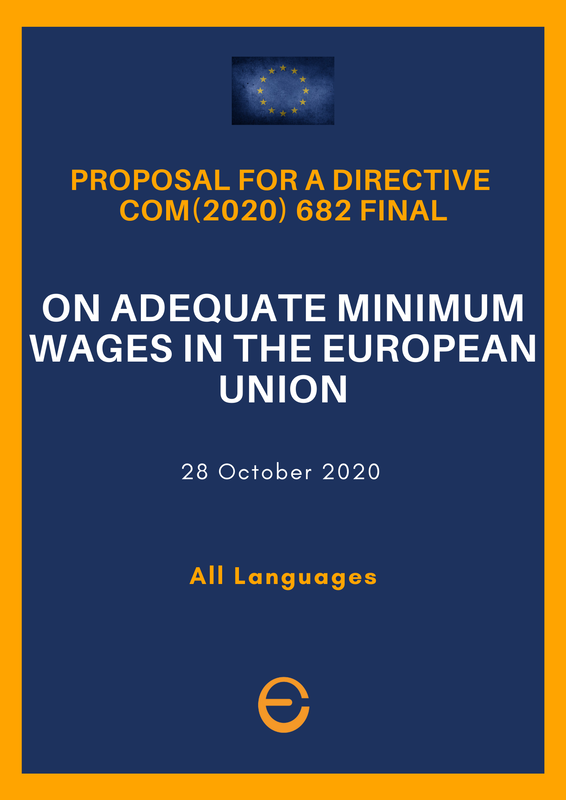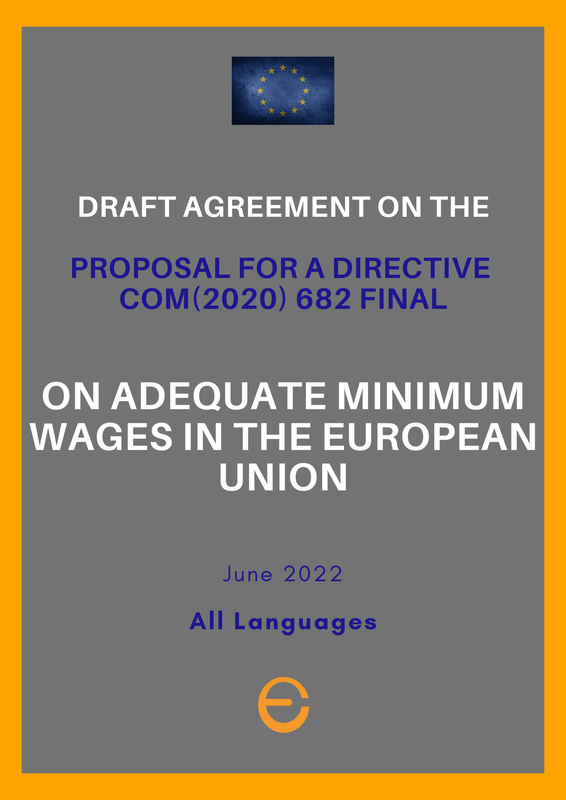EU SOCIAL PILLAR
Chapter II
Chapter II
6. Wages
"Adequate minimum wages shall be ensured, in a way that provide for the satisfaction of the needs of the worker and his / her family in the light of national economic and social conditions, whilst safeguarding access to employment and incentives to seek work. In-work poverty shall be prevented.
All wages shall be set in a transparent and predictable way according to national practices and respecting the autonomy of the social partners".
All wages shall be set in a transparent and predictable way according to national practices and respecting the autonomy of the social partners".



